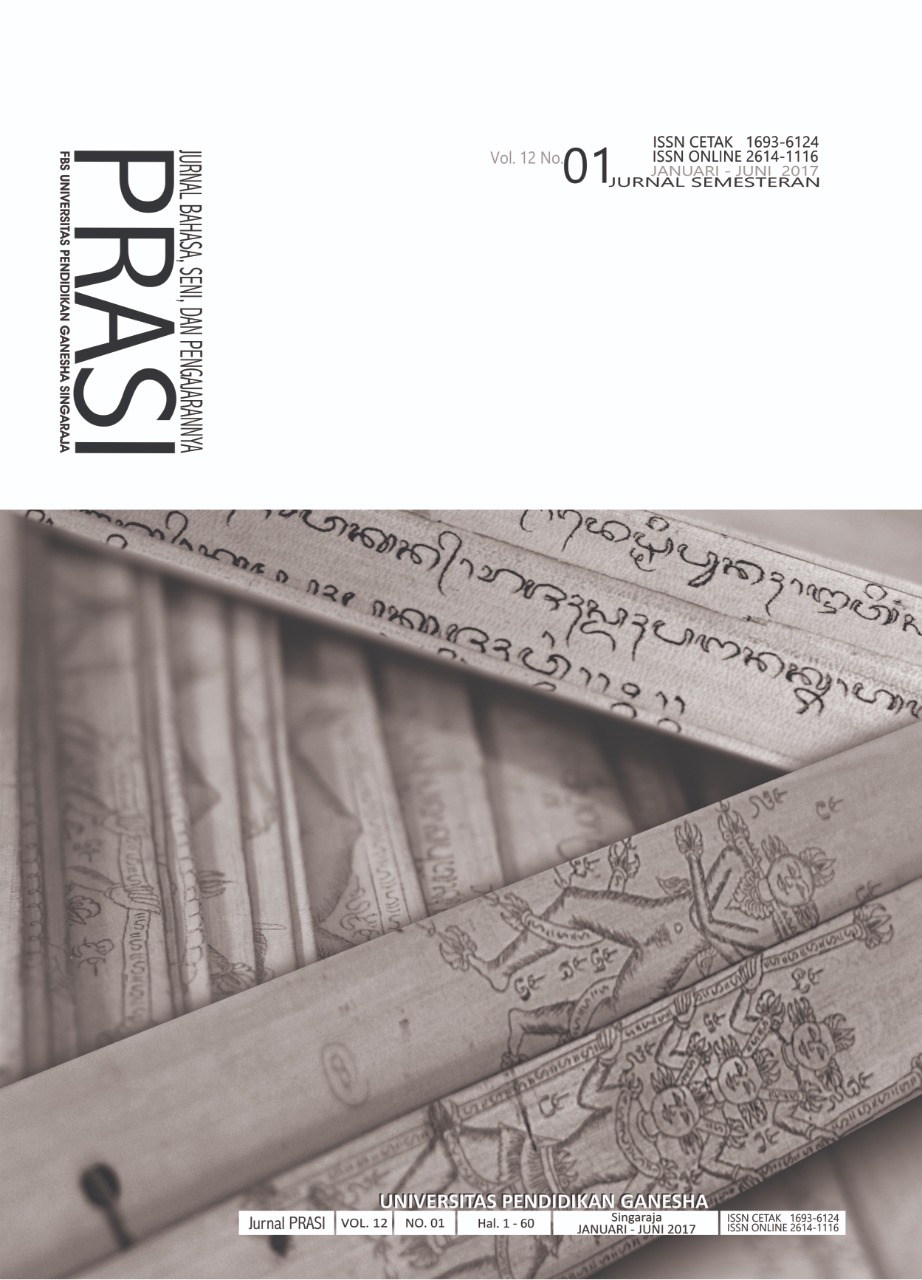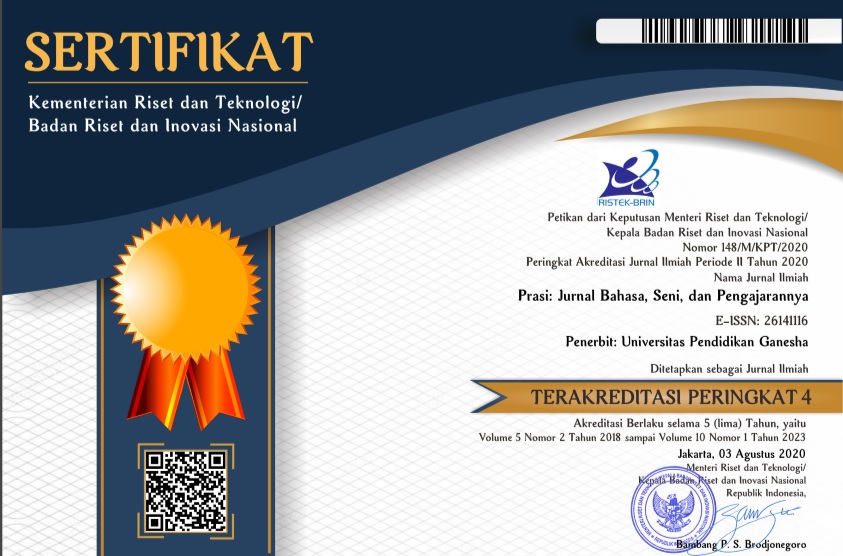STUDI KASUS PENERAPAN KODE ETIK JURNALISTIK PADA BERITA SIBER YANG DIBAGIKAN MELALUI GRUP FACEBOOK “METRO BALI”
DOI:
https://doi.org/10.23887/prasi.v12i01.13914Abstract
This research is aimed at knowing (a) the sinchronization of the news spread by facebook group Metro Bali with the Ethic Code of Journalistics and (b) awareness level of social media users in Bali about journalism’s news standard in the form of Ethic Code of Journalistics. To achieve this goal, 35 cyber news in “Metro Bali” was used by using purposive sampling technique. Other than that, there are 62 social media users chosen by random sampling technique. On this research, news cyber media in facebook group “Metro Bali” was observed by using checklist of Ethic Code of Journalistics as instruments. The comments on news sample were also observed to see the reaction of social media users on the shared cyber news. Other than that, social media users are given questionnaires. The collected data were analyzed quantitatively and qualitatively. The result of this research shows that (a) there are still many news that haven’t met the standards of Ethic Code of Journalistics and (b) there are still many social media users who haven’t tried to synchronize the news’ contents with the Ethic Code of Journalistics. This research is expected at improving the society’s awareness to be wise social media readers and users especially on the issue of cyber newsDownloads
Published
2017-06-25
Issue
Section
Articles
License
Authors who publish with Prasi agree to the following terms:- Authors retain copyright and grant the journal the right of first publication with the work simultaneously licensed under a Creative Commons Attribution License (CC BY-SA 4.0) that allows others to share the work with an acknowledgment of the work's authorship and initial publication in this journal
- Authors are able to enter into separate, additional contractual arrangements for the non-exclusive distribution of the journal's published version of the work (e.g., post it to an institutional repository or publish it in a book), with an acknowledgment of its initial publication in this journal.
- Authors are permitted and encouraged to post their work online (e.g., in institutional repositories or on their website) prior to and during the submission process, as it can lead to productive exchanges, as well as earlier and greater citation of published work. (See The Effect of Open Access)


.png)
.png)









